Publications
Articles, publications, books, tools and multimedia features from the U.S. Institute of Peace provide the latest news, analysis, research findings, practitioner guides and reports, all related to the conflict zones and issues that are at the center of the Institute’s work to prevent and reduce violent conflict.
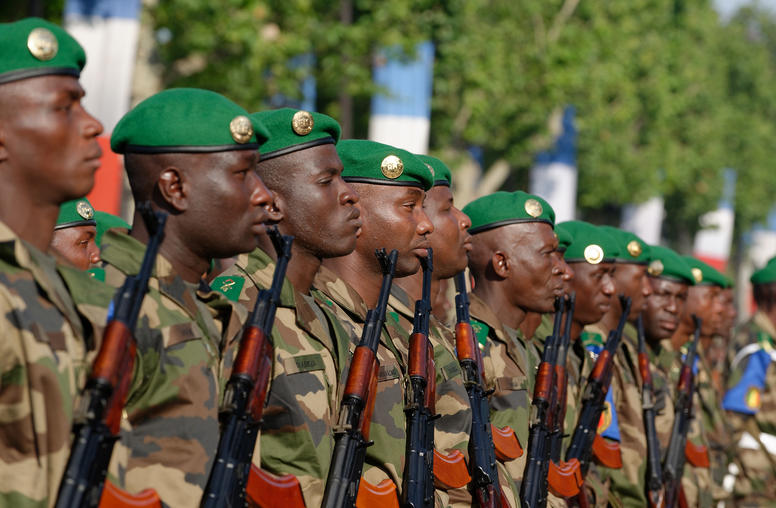
After Two Coups, Mali Needs Regional Support to Bolster Democracy
Amid a 15-year global democratic recession, the Biden administration is convening over a hundred nations this week to revitalize democracy. This comes at a critical juncture, as democracy’s defenders are reeling from the growing challenges posed by authoritarian foes. The West African country of Mali puts these challenges in stark relief, after the country experienced two coups in a year. Underlying the crisis of coups in Mali is a deeper crisis of state legitimacy, which has been exacerbated by Western security assistance overly focused on short-term counterterrorism gains.

New Evidence: To Build Peace, Include Women from the Start
In the 20 years since governments declared it imperative to include women’s groups and their demands in peace processes, experience and research continue to show that this principle strengthens peace agreements and helps prevent wars from re-igniting. Yet our inclusion of women has been incomplete and, in some ways, poorly informed. Now a study of recent peace processes in Colombia, Mali, Afghanistan and Myanmar offers new guidance on how to shape women’s roles. A critical lesson is that we must ensure this inclusion from the start.
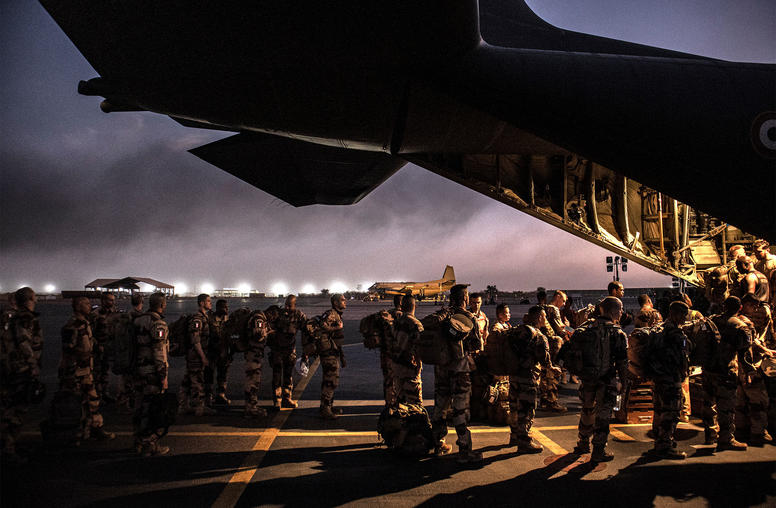
How International Security Support Contributed to Mali’s Coup
Since a 2012 coup, Mali has received significant security assistance from United States, France, the European Union and other foreign donors to address violent extremism and insurgency and help stabilize the country. In the wake of the August military coup, it is clear that strategy has backfired—and that, in fact, the failure of international security sector assistance to prioritize governance likely contributed to the conditions that led to the coup.
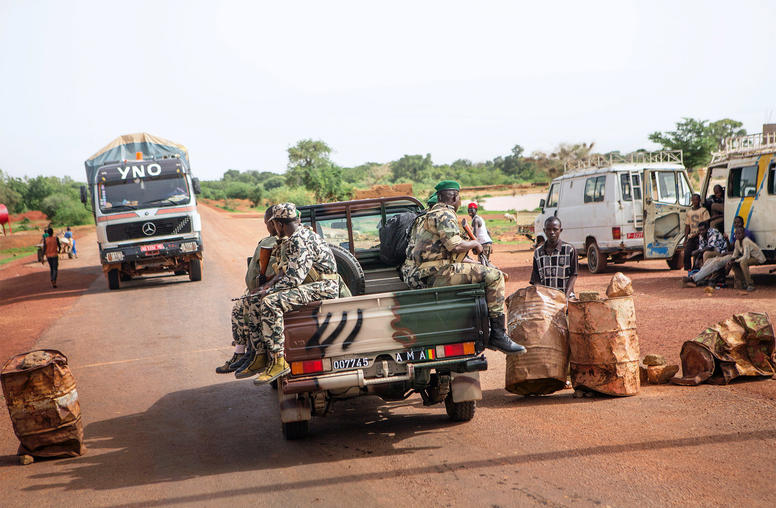
Mali’s Coup: Harbinger of Hope or Uncertainty
Last year was one of the most dramatic years of nonviolent action in recent memory, with millions taking to the streets to push for greater economic equality, democratic representation, and social justice. Some of the most dramatic uprisings took place in Africa, where longstanding repressive political regimes were forced from power in Sudan and Algeria, and protests over fuel prices in Zimbabwe led to a government crackdown. The recent almost entirely bloodless coup Mali, in which soldiers abducted President Ibrahim Boubacar Keita and forced him to resign capped a similar uprising, but is complicated by the role of the military in the president’s ouster and the COVID-19 pandemic.
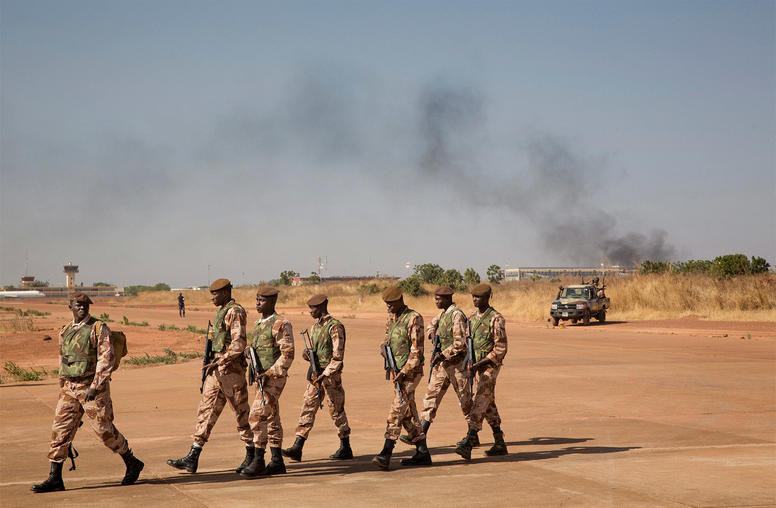
Five Things to Know About Mali’s Coup
On August 18, rising tensions to boiled over into a mutiny, leading to the resignation of President Ibrahim Boubacar Keita. This dramatic chain of events followed three months of protests, calling for Keita’s resignation. As the country grapples with an intractable insurgency and eight years of instability, anger over the government’s failure to resolve conflict, respect democratic norms, and provide basic services pushed citizens and the military to their boiling point. What comes next in Mali over the coming months could have significant implications for the country’s democracy and on the stability of the Sahel.

Susan Stigant on Mali’s Military Coup
After months of public protests, a military coup has toppled Mali’s government. USIP’s Susan Stigant looks at the path forward, saying “there’s a real tension in trying to figure out how to restore that constitutional order without necessarily going back to the status quo prior to the coup.”
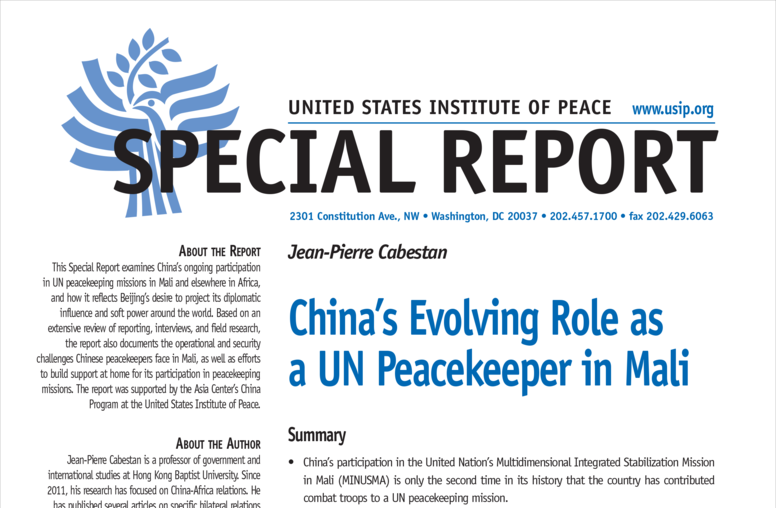
China’s Evolving Role as a U.N. Peacekeeper in Mali
Chinese troops have been stationed in Mali for the last half-decade as part of the UN-mandated stabilization force. Deployed after rebel groups overran large portions northeastern Mali in 2013, it was just the second time Beijing had ever contributed combat troops to a UN peacekeeping mission. This Special Report examines how China is using its peacekeeping activities in Mali as an opportunity to train troops and test equipment in a hostile environment—and as a way of extending its diplomatic reach and soft power in Africa and beyond.
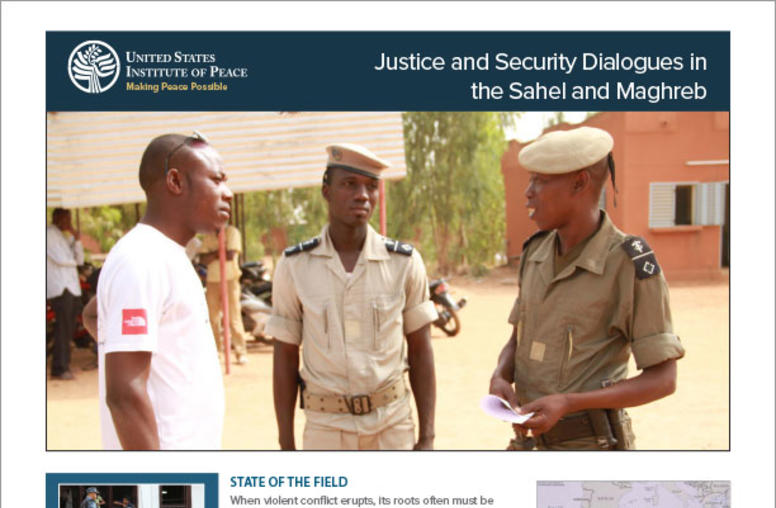
Justice and Security Dialogues in the Sahel and Maghreb
When violent conflict erupts, its roots often must be found and healed at the community level. Amid such turmoil, however, government officials, police, and community leaders are likely to mistrust each other—a breakdown in relations that opens space for security threats, including violent extremism and organized crime.
Corruption’s Conflict Risk Calls for Tight Coordination
From the Panama Papers to an op-ed by Secretary of State John Kerry to a hearing in the U.S. Senate, signs are growing that the U.S. is beginning to understand the threat that widespread corruption po
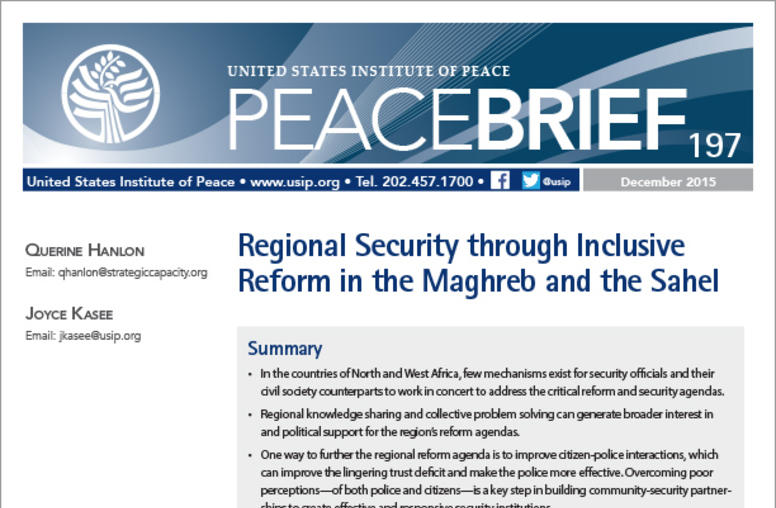
Regional Security through Inclusive Reform in the Maghreb and the Sahel
Throughout the Maghreb and the Sahel, governments are struggling to manage a security environment fundamentally transformed by the Arab Spring. Within this region, the efforts of governments to secure their territories and civil society organizations to create accountable and transparent security institutions have proceeded almost wholly divorced from each other. This Peace Brief shares key insights from the engagement between official and civil society actors both within and across borders t...